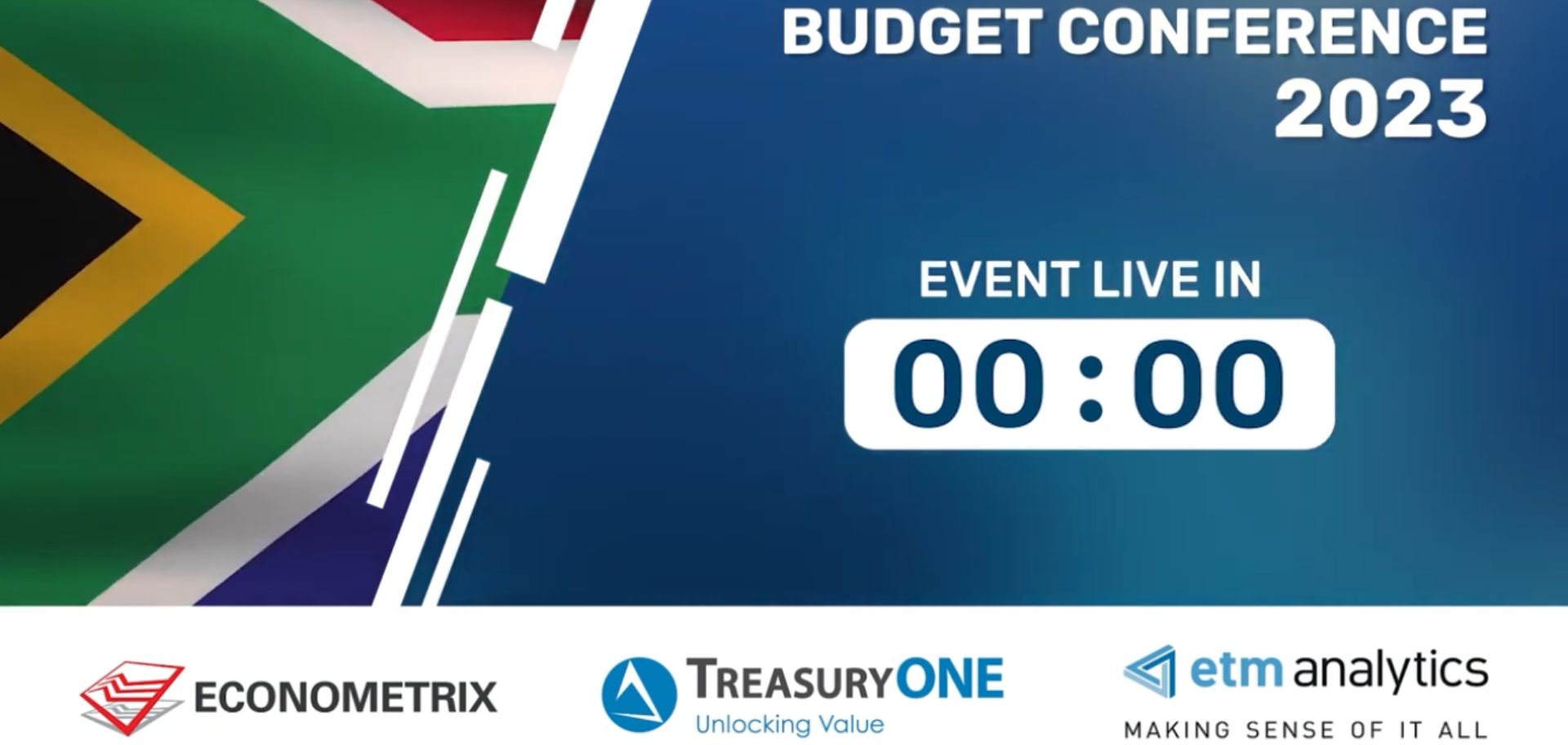If you’re looking for great insights into the Budget Speech, this is the right place. In this article, I set out what I learnt from the TreasuryONE Budget Conference. You’ll also find the video recording of the entire event.
Load shedding. Transnet. The rand. These are the headline-grabbers that cause grey hairs for most South Africans and especially for business executives and entrepreneurs.
With the budget speech now out in the wild, we have a view on government’s latest fiscal policies. TreasuryONE hosted an excellent panel discussion on this topic that I had the pleasure of watching on Thursday morning. I thought I would share some of my key takeouts before giving you the opportunity to watch the discussion yourself.
We did well during the pandemic
As a country, the pandemic was relatively kind to us. We didn’t print crazy amounts of money. We spent less than many other countries and the commodity cycle was great for South Africa, with commodities like coal and PGMs pulling us out of trouble.
The reduced pressure on our interest bill after such a strong period is really helping us with navigating the current global climate.
We score a lot of own goals
Kumba Iron Ore. Thungela. If you’ve been reading the recent updates from these companies, you’ll know that Transnet is severely hindering our exports. In the Unlock the Stock event that I co-hosted later in the day on Thursday, the CEO of Afrimat highlighted that even the commodities being consumed domestically are being severely impacted, so it’s not just the export lines.
During the TreasuryONE panel discussion, it was estimated that we’ve lost up to R100 billion in coal export opportunities because of Transnet. To make it worse, our road infrastructure isn’t coping with the additional load that should be running on our railways.
The great balance sheet roll-up continues
For years now, we’ve been dealing with failing (or failed) SOEs and moving their debt onto the fiscal balance sheet. Bluntly, taxpayers suffer when companies like SAA lose a fortune.
Eskom dwarfs all these issues, with R254 billion worth of debt being moved onto the country’s balance sheet over three years. This is a necessary step to reduce risk of an Eskom default and related cross-defaults. It allows for more funding to go into maintenance and diesel rather than interest payments.
The debt alleviation comes with a strict set of conditions. But as was pointed out by political analyst Songezo Zibi during the panel discussion, what actually happens if Eskom doesn’t meet the conditions? It’s not as though government will switch the entire country off… not by choice, anyway!
Are the winds of change blowing?
Overall, the mood of the panel was that this was a less populist budget than we might have seen in recent years. Government is reigning in public sector wage spending and is pursuing policies aimed at encouraging investment, not consumption. There was no mention at all of NHI, land reform or nationalisation of the Reserve Bank.
Are we seeing a significant shift in policy here?
There are incentives in place for solar, so the government is trying to address the energy crisis. Although the incentive for individuals was a little soft, the business incentives are strong. Of course, what would really help is if people could effectively sell back into the grid. Cape Town will be the test case for that!
One area where government recognised the needs of the voter base was in the fuel levy, which hasn’t had an increase for the second year running. Together with diesel rebate initiatives, this helps with managing food inflation.
But be careful…
Debt to GDP is forecast to be higher than in the 2022 Medium-Term Budget Policy Statement (MTBPS), a direct result of the large chunk of Eskom debt moving onto the fiscal balance sheet. The difference vs. the MTBPS is 360 basis points at the peak debt to GDP ratio in 2025/26.
The trouble is that the economic growth forecasts used by Treasury are higher than those used by the SARB. It’s not clear whether Treasury has fully considered the impact of current levels of load shedding.
The other issue is that commodity prices have tapered off from pandemic levels. Commodities are notoriously cyclical, so assuming growth off the pandemic revenue base is brave.
GDP is ahead of pre-COVID levels but employment is down 4% – 5% and investment is 12% lower. This is a recipe for danger.
And finally, the biggest positive of all
Unlike so many other countries in the world that are in difficult economic circumstances, we still enjoy one critical element of our beloved country: free press.
In what turned out to be Andre de Ruyter’s exit interview, we saw that shining through.



